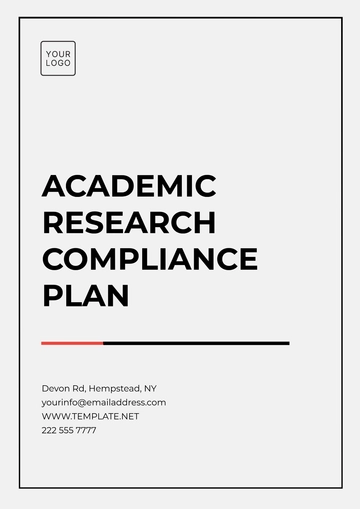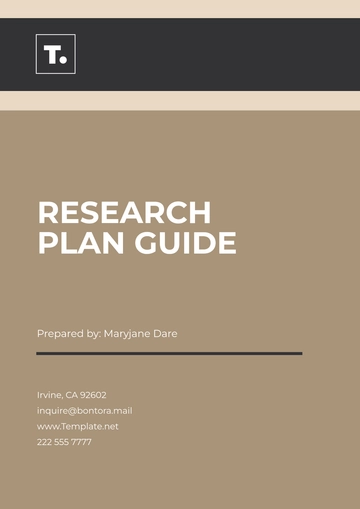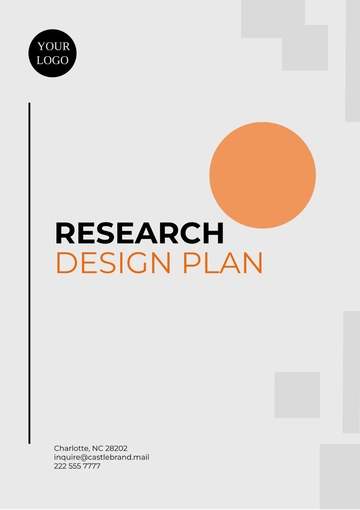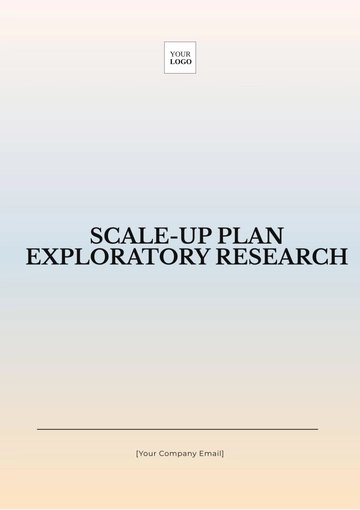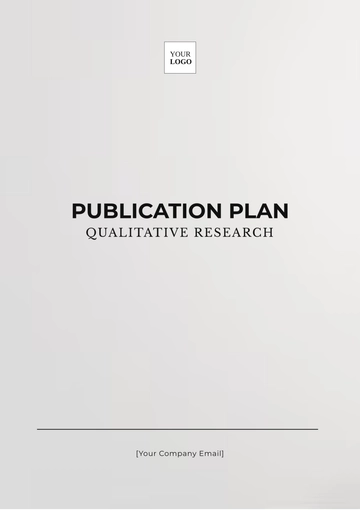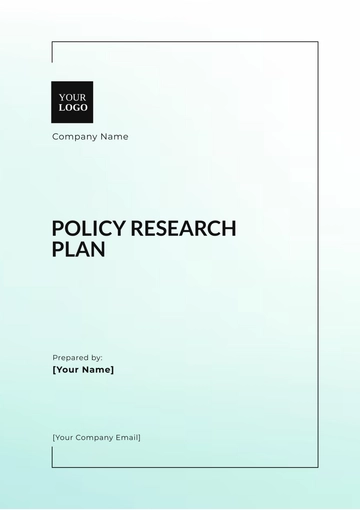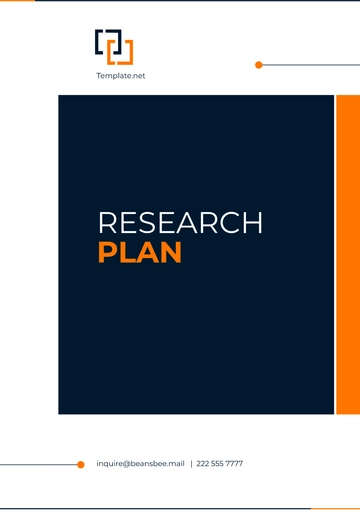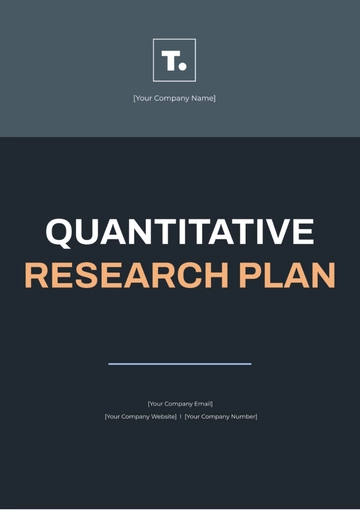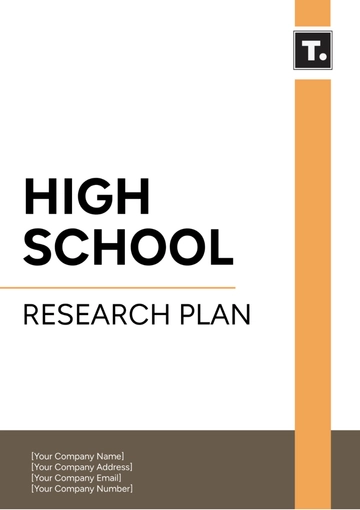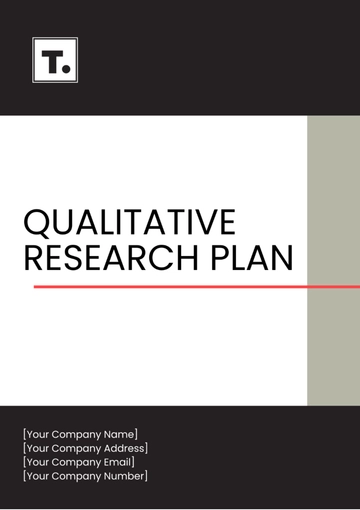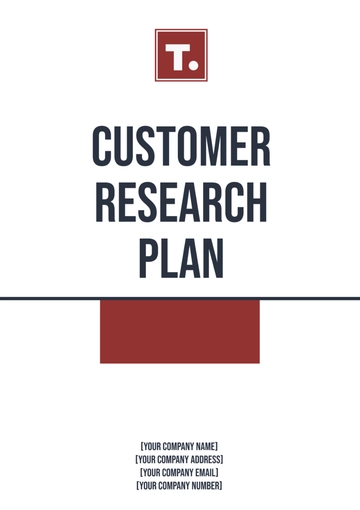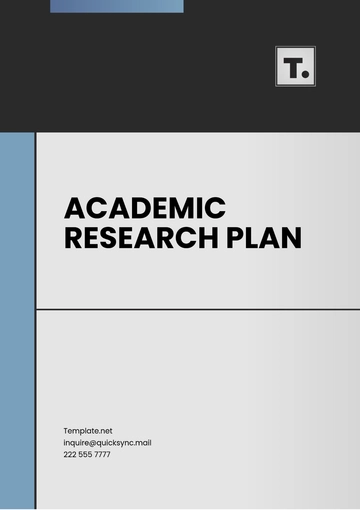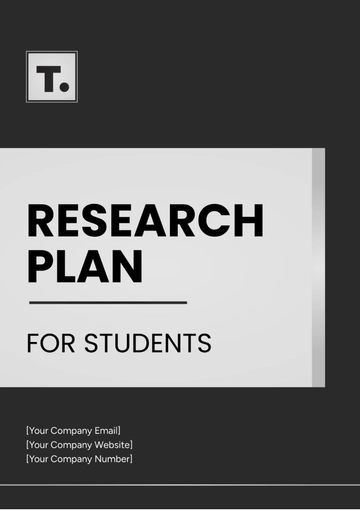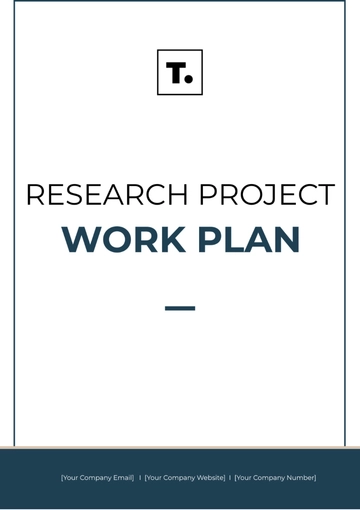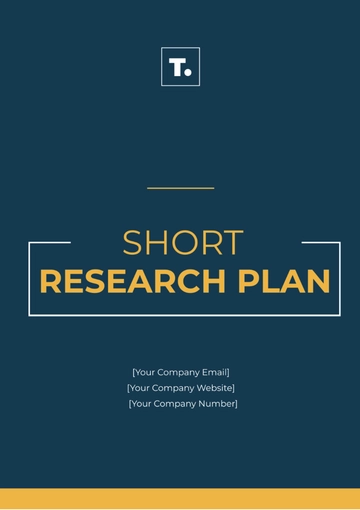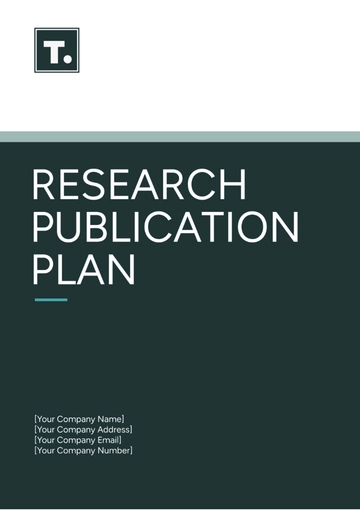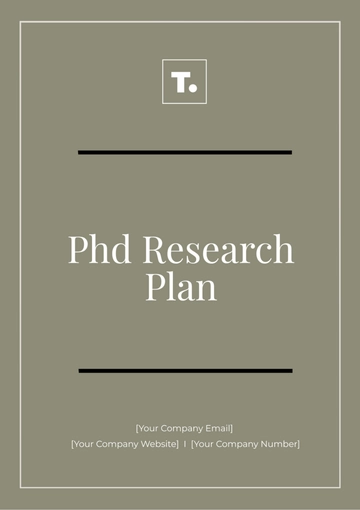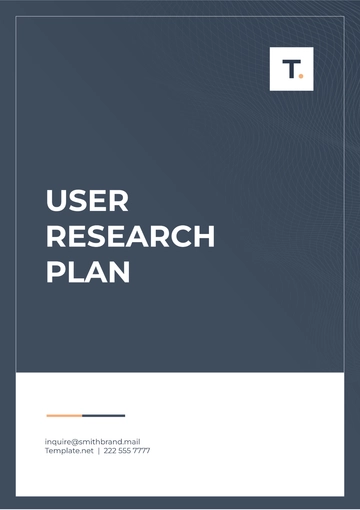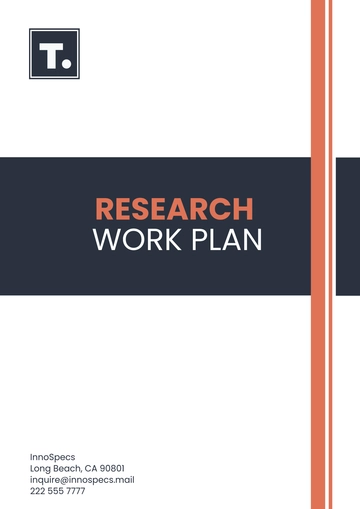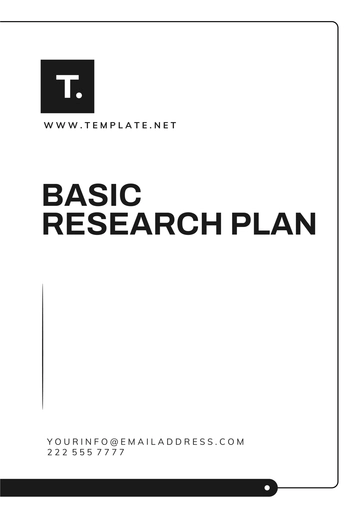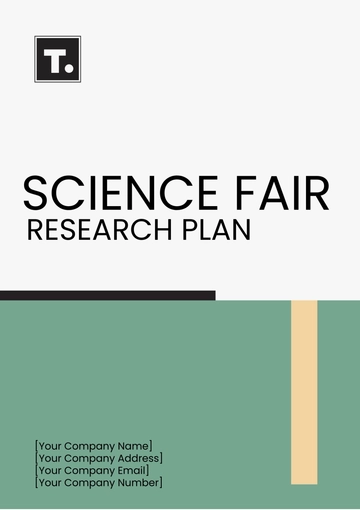Free Academic Research Plan
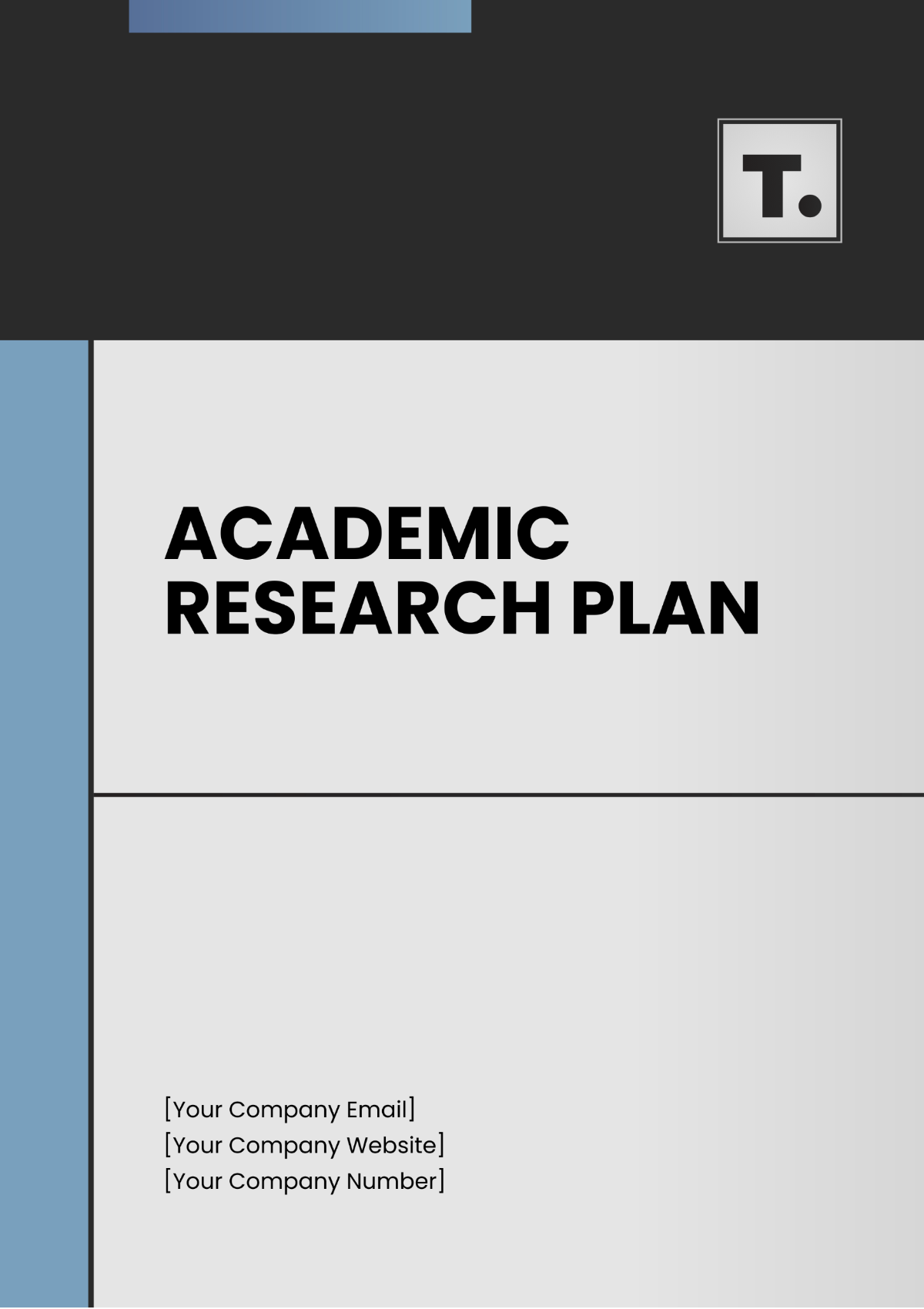
I. Introduction
Virtual Reality (VR) technology has rapidly advanced in recent years, presenting exciting opportunities for revolutionizing traditional educational methodologies. By creating immersive and interactive learning environments, VR has the potential to significantly enhance student engagement, knowledge retention, and skill acquisition. However, the extent of its effectiveness and the challenges associated with its integration into educational settings warrant thorough investigation. This Academic Research Plan explores the multifaceted impact of VR technology on education, aiming to provide valuable insights for educators, policymakers, and researchers.
II. Objectives
1. Assessing Student Engagement
This objective seeks to evaluate how VR technology influences student engagement in educational contexts, measuring attention span, motivation, and active participation during VR-based learning experiences.
2. Enhancing Knowledge Retention
The objective is to examine VR technology's effectiveness in enhancing students' knowledge retention. By comparing retention rates between traditional learning methods and VR-based learning, this objective aims to discern the long-term impact of VR on knowledge acquisition.
3. Facilitating Skill Acquisition
This objective focuses on assessing the role of VR technology in facilitating skill acquisition and practical learning experiences. It aims to identify specific skills, such as problem-solving or spatial reasoning, that are effectively developed through VR-based educational interventions.
4. Identifying Challenges and Barriers
Through this objective, the research intends to identify potential challenges and barriers associated with the integration of VR technology in education. Factors such as technological limitations, accessibility issues, and cost implications will be examined to provide a comprehensive understanding of the obstacles hindering widespread adoption.
5. Providing Recommendations
Drawing on the findings of the research, this objective aims to offer practical recommendations for educators and policymakers regarding the effective integration of VR technology into educational practices. These recommendations will address strategies for curriculum design, teacher training, infrastructure development, and policy implementation to maximize the benefits of VR in education.
III. Methodology
1. Participants
The study will involve 200 participants, including students and educators, recruited from diverse educational institutions spanning primary, secondary, and tertiary levels.
2. Research Design
A mixed-methods approach will be adopted, encompassing both quantitative and qualitative data collection methods. Quantitative surveys will be administered to measure engagement levels, retention rates, and perceived learning outcomes, while qualitative interviews will provide deeper insights into the experiences and perspectives of participants.
3. Data Collection
Data collection will occur for six months, encompassing pre- and post-intervention assessments, observational studies of VR-based learning sessions, and in-depth interviews with selected participants. Surveys will be distributed electronically, while interviews will be conducted face-to-face or via video conferencing.
4. Data Analysis
Quantitative data will be analyzed using statistical techniques such as regression analysis and correlation tests to identify relationships between variables. Qualitative data will be transcribed, coded, and analyzed thematically to extract key themes and patterns.
IV. Timeline
Phase | Duration |
|---|---|
Planning and Preparation | March 2050 - May 2050 |
Data Collection | June 2050 - September 2050 |
Data Analysis | October 2050 - December 2050 |
Report Writing and Presentation | January 2051 - March 2051 |
V. Resources Required
Resource | Description |
|---|---|
VR Headsets and Equipment | Oculus Rift, HTC Vive, etc. |
Software Development Expertise | Development of VR educational content |
Research Assistants | Assist with data collection and analysis |
Access to Educational Institutions | Facilities and participants for research activities |
VI. Expected Outcomes
Insights into the Effectiveness of VR Technology: The research aims to provide comprehensive insights into the effectiveness of VR technology in education, shedding light on its potential benefits and limitations.
Recommendations for Integration: Based on the research findings, practical recommendations will be formulated to guide educators and policymakers in effectively integrating VR technology into educational practices.
Contribution to Knowledge: The research seeks to contribute to the existing body of knowledge on VR technology in education, offering valuable insights for future research endeavors and educational initiatives.
VII. Budget
Expense | Estimated Cost |
|---|---|
Equipment Procurement | $40,000 |
Software Development | $20,000 |
Personnel Salaries | $25,000 |
Travel | $10,000 |
Participant Incentives | $5,000 |
Total | $100,000 |
VIII. Conclusion
Through rigorous investigation and analysis, this research project endeavors to deepen our understanding of the impact of VR technology on education. By exploring its influence on student engagement, knowledge retention, and skill acquisition, this study aims to inform evidence-based decision-making and contribute to the ongoing discourse surrounding the integration of technology in education.
For further inquiries regarding this Academic Research Plan, please contact [YOUR NAME] at [YOUR EMAIL].
- 100% Customizable, free editor
- Access 1 Million+ Templates, photo’s & graphics
- Download or share as a template
- Click and replace photos, graphics, text, backgrounds
- Resize, crop, AI write & more
- Access advanced editor
Maximize your academic potential with the Academic Research Plan Template from Template.net. This customizable and editable template offers a seamless framework for organizing your research objectives, methods, and timelines. Tailor it effortlessly to your project's needs using our intuitive AI Editor Tool. Streamline your planning process and focus on what truly matters: your research.
You may also like
- Finance Plan
- Construction Plan
- Sales Plan
- Development Plan
- Career Plan
- Budget Plan
- HR Plan
- Education Plan
- Transition Plan
- Work Plan
- Training Plan
- Communication Plan
- Operation Plan
- Health And Safety Plan
- Strategy Plan
- Professional Development Plan
- Advertising Plan
- Risk Management Plan
- Restaurant Plan
- School Plan
- Nursing Home Patient Care Plan
- Nursing Care Plan
- Plan Event
- Startup Plan
- Social Media Plan
- Staffing Plan
- Annual Plan
- Content Plan
- Payment Plan
- Implementation Plan
- Hotel Plan
- Workout Plan
- Accounting Plan
- Campaign Plan
- Essay Plan
- 30 60 90 Day Plan
- Research Plan
- Recruitment Plan
- 90 Day Plan
- Quarterly Plan
- Emergency Plan
- 5 Year Plan
- Gym Plan
- Personal Plan
- IT and Software Plan
- Treatment Plan
- Real Estate Plan
- Law Firm Plan
- Healthcare Plan
- Improvement Plan
- Media Plan
- 5 Year Business Plan
- Learning Plan
- Marketing Campaign Plan
- Travel Agency Plan
- Cleaning Services Plan
- Interior Design Plan
- Performance Plan
- PR Plan
- Birth Plan
- Life Plan
- SEO Plan
- Disaster Recovery Plan
- Continuity Plan
- Launch Plan
- Legal Plan
- Behavior Plan
- Performance Improvement Plan
- Salon Plan
- Security Plan
- Security Management Plan
- Employee Development Plan
- Quality Plan
- Service Improvement Plan
- Growth Plan
- Incident Response Plan
- Basketball Plan
- Emergency Action Plan
- Product Launch Plan
- Spa Plan
- Employee Training Plan
- Data Analysis Plan
- Employee Action Plan
- Territory Plan
- Audit Plan
- Classroom Plan
- Activity Plan
- Parenting Plan
- Care Plan
- Project Execution Plan
- Exercise Plan
- Internship Plan
- Software Development Plan
- Continuous Improvement Plan
- Leave Plan
- 90 Day Sales Plan
- Advertising Agency Plan
- Employee Transition Plan
- Smart Action Plan
- Workplace Safety Plan
- Behavior Change Plan
- Contingency Plan
- Continuity of Operations Plan
- Health Plan
- Quality Control Plan
- Self Plan
- Sports Development Plan
- Change Management Plan
- Ecommerce Plan
- Personal Financial Plan
- Process Improvement Plan
- 30-60-90 Day Sales Plan
- Crisis Management Plan
- Engagement Plan
- Execution Plan
- Pandemic Plan
- Quality Assurance Plan
- Service Continuity Plan
- Agile Project Plan
- Fundraising Plan
- Job Transition Plan
- Asset Maintenance Plan
- Maintenance Plan
- Software Test Plan
- Staff Training and Development Plan
- 3 Year Plan
- Brand Activation Plan
- Release Plan
- Resource Plan
- Risk Mitigation Plan
- Teacher Plan
- 30 60 90 Day Plan for New Manager
- Food Safety Plan
- Food Truck Plan
- Hiring Plan
- Quality Management Plan
- Wellness Plan
- Behavior Intervention Plan
- Bonus Plan
- Investment Plan
- Maternity Leave Plan
- Pandemic Response Plan
- Succession Planning
- Coaching Plan
- Configuration Management Plan
- Remote Work Plan
- Self Care Plan
- Teaching Plan
- 100-Day Plan
- HACCP Plan
- Student Plan
- Sustainability Plan
- 30 60 90 Day Plan for Interview
- Access Plan
- Site Specific Safety Plan
